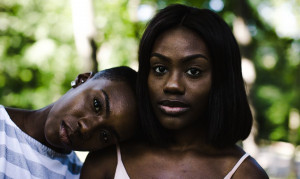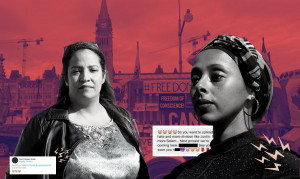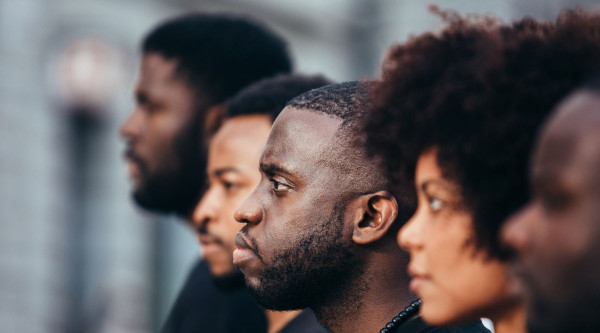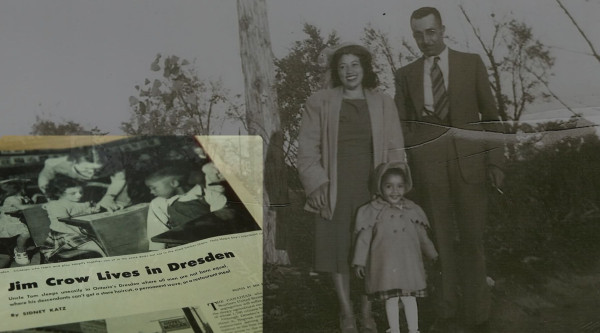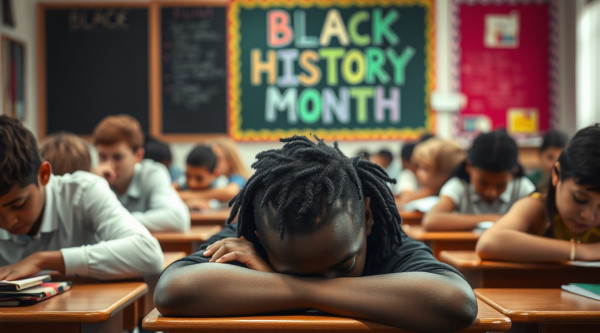Illustrating the intent of Frankson and his collaborators to “express and share about our unified Black experience,” the book consists of both essays and poetry from Black poets from all over Canada, with select poems translated in both of the nation’s official languages.
“The anthology that we’ve done, AfriCANthology, combines poetry with personal essay, but it does so while bringing in not just geographic diversity, not just ethno-cultural diversity — meaning folks of African descent or Caribbean descent or African-Nova Scotian descent for example, but also we have a great span of gender and gender identity diversity,” Frankson says. “We felt that it was very important to respect the voice of Black people in the tongue which they speak as their mother tongue, and to make sure that that is placed in the collection so that people can feel their voice first-hand.”
An award-winning spoken word poet under the alias Ritallin, Frankson was inspired to put together AfriCANthology greatly because of the events following the Covid-19 pandemic and the Black Lives Matter protests kickstarted by the murder of George Floyd.
Contributing literary artists in AfriCANthology span a generationally diverse range, with pieces from some founding members of Canada’s Black poetry community including Jamaica’s current Poet Laureate Olive Senior, former Parliamentary Poet Laureate and winner of the Governor General’s Literary Award George Elliot Clarke, and former Poet Laureate of Halifax and author of The Hanging of Angelique, Afua Cooper. Cicely Belle Blain, an activist and the author of Burning Sugar, and multiple National Poetry Slam champions Dwayne Morgan and Truth Is… represent a younger generation of impactful and well-known Canadian Black poets with entries in the anthology.
When asked about his experience putting together the anthology, Frankson says “it was a really humbling experience [reaching] out to people whom you hold in high regard and respect. We’re talking about the who’s who of Black Canadian literature. And simply having the opportunity to have conversations with folks like that, much less to produce work in which their words appear… that entire experience has been profound for me. And it has reinvigorated my passion, not just for the written word, but also for working with other artists from my cultural identity to continue to build the canon of Black Canadian literature.”
ByBlacks sat down with a few of the contributors to talk about their feelings on the project, and the impact they hope AfriCANthology to have now and in the future.
What was it that prompted and inspired you to take part in this project?
George Elliot Clarke: It was so wonderful to hear of this idea from [Greg] and to give him whatever encouragement I could offer to go forward in bringing it together. I think this is a historic anthology like The Great Black North and I love the fact that it’s so representative. I think it’s going to be a document that’s going to stand for a very long time.
Afua Cooper: I think it was an idea whose time had come. It’s not the first project that involves a collection of writings from Black writers all across Canada — there’s several before that. But Greg’s collection, AfriCANthology, was very ambitious in its reach and in its scope; Greg did poetry and fiction, meditations, and he brought in a wide range of writers and contributors. I think it's really unique in that sense. And people wrote about things that are pertinent — it came out in this post-George Floyd moment, so it provides space for meditation on that event and what transpired after that event. That was what struck me.
Dwayne Morgan: The thing that I liked about the project was they weren’t just asking for a poem, but they also wanted an essay about part of my experience. It was really a way to let people into the behind-the-scenes of what life is like trying to navigate these spaces as a racialized person. I like the fact that people were gonna get a poem, but also so much more than that through the essays.
Truth Is…: Our stories are not really out there. I mean, I’m sure that, as I struggle, there have been many artists who struggle; you’re Black, you’re queer, you’re woman, however, the world is looking at you. You’re struggling, and the world only wants to see you win that Slam, or put you on the radio, and no one really wants to hear your story, nobody really wants to validate your presence and your contribution. We need to start taking an invested interest in ensuring that our stories exist beyond the now.
What do you hope is accomplished with AfriCANthology?
Greg Frankson: We want to contribute to the ongoing conversation around Blackness in Canada first and foremost. We want to capture and archive the voices of Blackness at this particular moment in history so that it can be passed on to generations that follow us, so they can learn and understand what we were living through at this moment in history. We want to be able to teach our people about themselves and give them strength and confidence and pride in the stories of their community.
Afua Cooper: We’re in this digital age, and I know Greg is going to put it on digital platforms to make it accessible to everyone, to make it accessible to a younger audience. And that’s one of my hopes because it can serve as an introduction to diverse audiences, but specifically to a younger audience. People will access it, people will engage it. And certainly it is contributing to the articulation of Black writings in Canada, which I think is in a good place right now. It’s really in a good place. I think African Canadian writings, the literature, the field, has come into its own. It’s really a developed field, very mature, we have some strong voices, we have some emerging voices, upcoming voices. I think AfriCANthology will give more space to that promotion of Black writing in Canada and globally.
Dwayne Morgan: I think people reading the book, they’ll get a sense that Black people truly are right across the country and that we’re all active, doing things; that there is a wealth of Black writers, Black perspectives. I hope that people see just how diverse the Black experience is, even within the boundaries of what we call Canada. I think there’s a lot that people could learn whether they’re Black or not — simply from reading this book and reading the perspectives and experiences of contemporary living Black people who are currently in the practice of writing. We want to see people across the country picking it up.
What do you think about the visibility and recognition of Black poets, writers, and literaries?
Greg Frankson: I’d say that in the last decade or so, Black poets, particularly in the field of spoken word, have never been more prominent. Folks are taking on those challenges of putting their words out there in places and spaces where we haven’t necessarily seen them before. They’re elevating their game. They’re mentoring and passing on knowledge to the next generation of poets and we’re seeing all those kinds of folks bubbling up, like Thandiwe McCarthy, our contributor from New Brunswick, who’s just participated in founding the New Brunswick Black Artist Alliance. Each one of us is doing a little bit, putting one more brick in the wall.
Afua Cooper: There’s been a lot of visibility and it’s really heartwarming. [But] I am part of this movement: we weren’t waiting for white people to validate us, or for the establishment to validate us; we just went out there and we did our thing. We published our own works, we made our own CDs. We created our own websites. We held our own readings, our own festivals. We really didn’t care about what white people or white establishments thought. So then they had to turn around and say “oh great, you guys are wonderful” and it’s nice, but we weren’t waiting on them for validation.
Dwayne Morgan: The Black poets who are the backbone of the spoken word community don’t always get the same opportunities that people who aren’t Black will get. When you get into the broader society, those people love the energy of what we do but not the content of what we do. So they always seek out somebody who doesn’t necessarily look like us who can have the same kind of energy, but is talking about stuff that is more digestible to their palate; they want the Black, just without the Black. As a result, many of the people who are some of the most phenomenal spoken word artists don’t get the same opportunities and shine on a larger scale that other people get simply because of the work that we create about things that are important for us to speak about.
Truth Is…: I was born out of seeing the bravery in standing out there by yourself. There were only a few people looking out for the Black voices. We had fewer dedicated spaces. Dwayne running Up From The Roots, that’s The Godfather of spoken word. We definitely owe a great deal of the modern element to the stages he’s facilitated. Witnessing that was instrumental, and I’m sure that there are a lot of other Black people who are feeling the same way.
Supporters can pick up a copy of AfriCANthology from a few Black-owned Canadian book stores, including A Different Booklist in Toronto, Librairie Racines in Montreal, or Tusome Books in Winnipeg, and Knowledge Book Store, as well as Amazon.
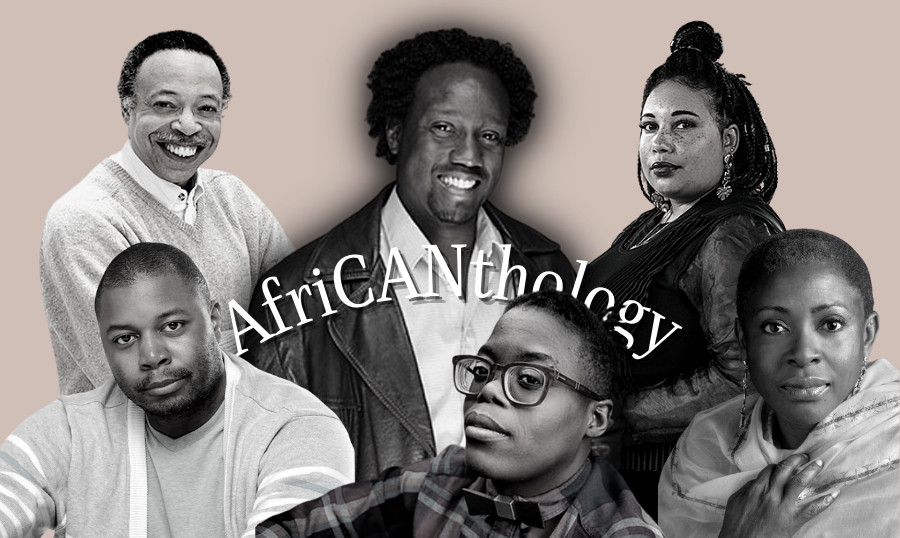
 By
By 




